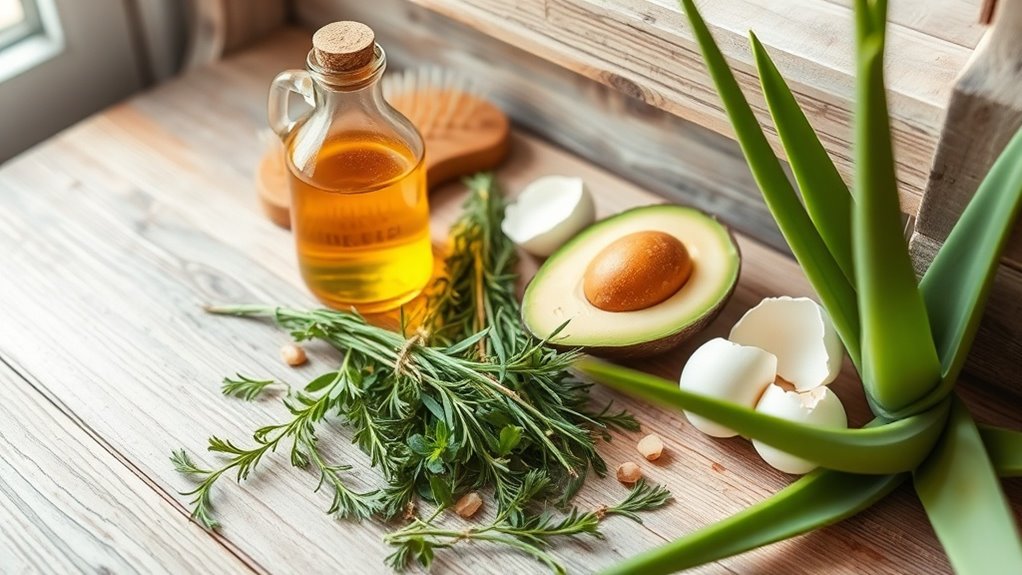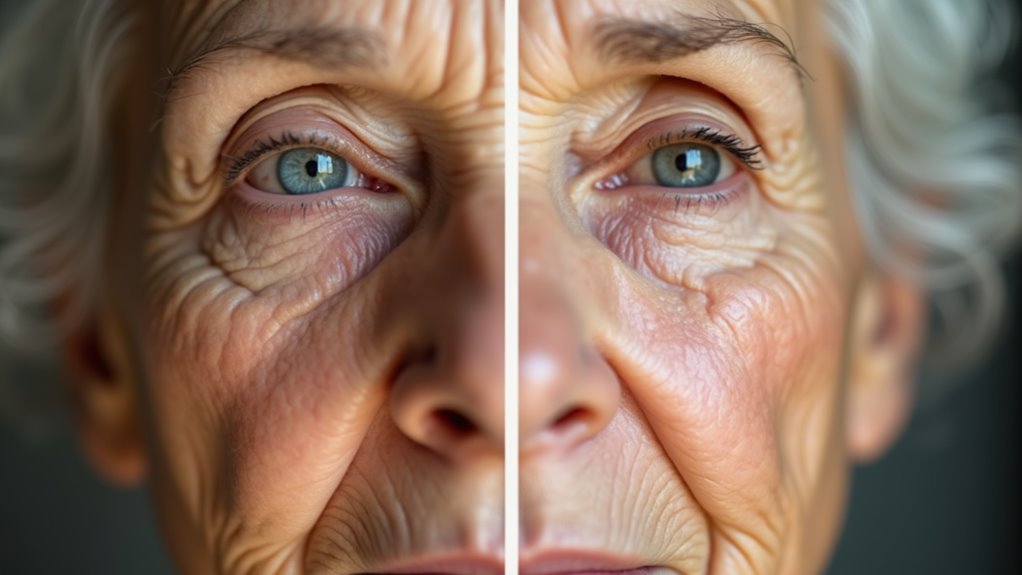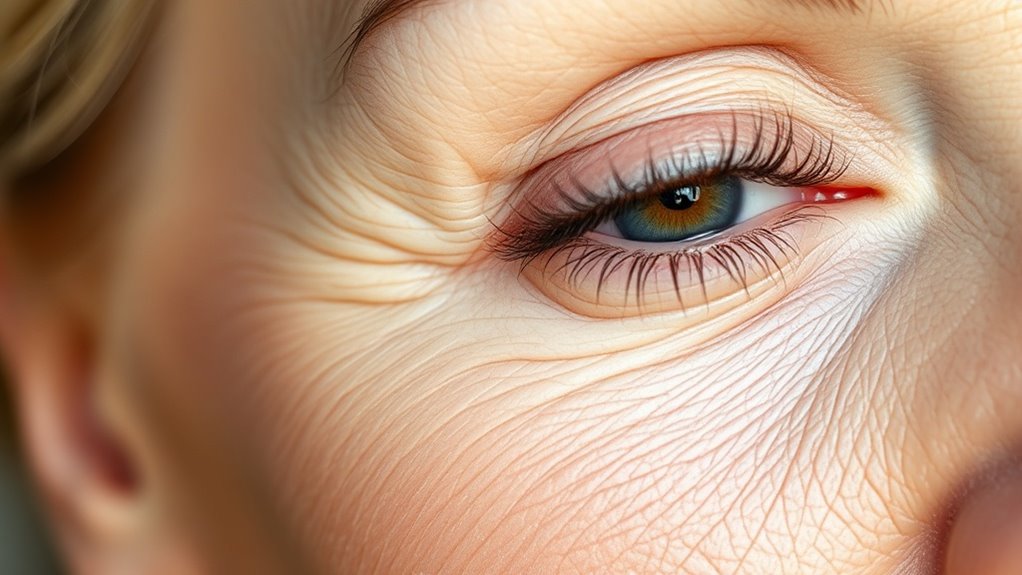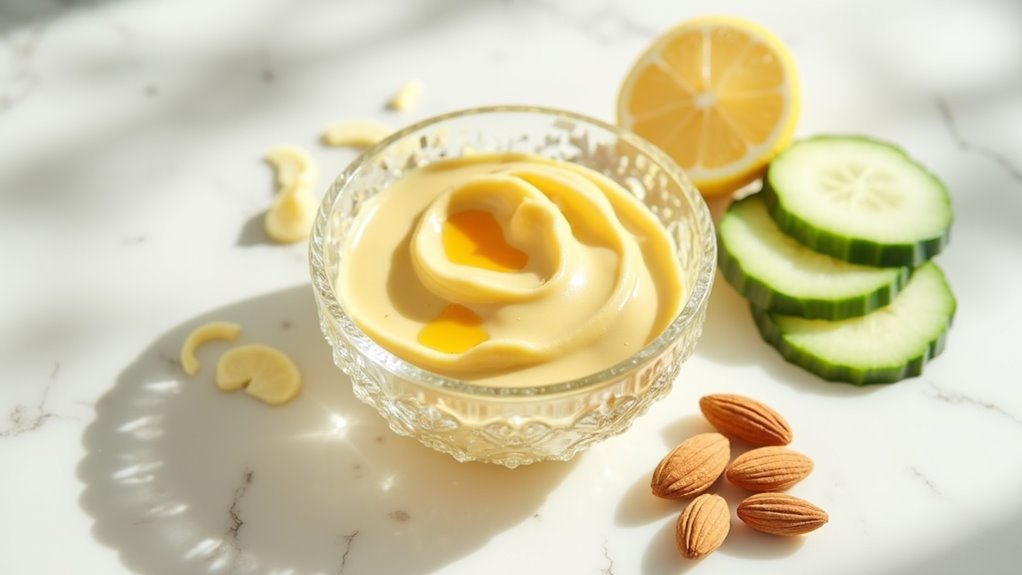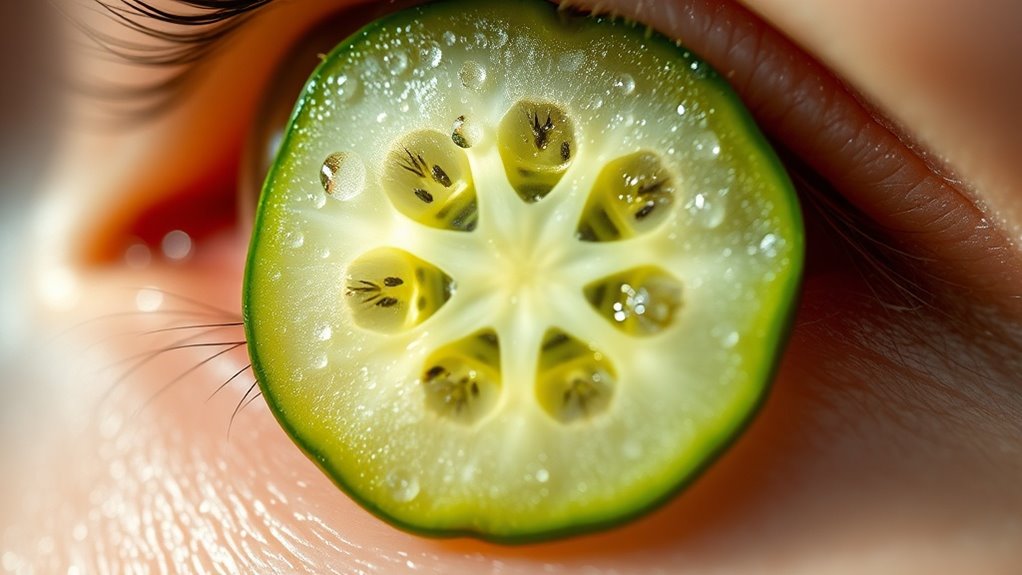Hair Thickening Remedies That Add Volume Naturally
You can naturally thicken your hair through targeted nutrition and scalp care. Start by increasing your intake of biotin, iron, and omega-3 fatty acids while applying natural treatments like aloe vera and egg masks. Combine these with daily 5-10 minute scalp massages using circular motions to boost blood circulation to your follicles. These evidence-based approaches, when used consistently, can improve hair volume by up to 30% – but there’s much more to achieving optimal results.
Understanding Hair Growth and Volume
Hair growth follows a cyclical pattern consisting of three main phases: anagen (growth), catagen (transition), and telogen (resting).
During the anagen phase, your hair actively grows for 2-7 years, determining its maximum length and thickness. Understanding these cycles is crucial when considering hair thickening remedies.
Your hair’s volume depends on several factors: the diameter of individual strands, the number of active follicles, and the density of growth.
Genetics, hormones, nutrition, and overall health influence these elements. Each follicle contains a dermal papilla, which controls the hair’s thickness and growth rate through blood supply and nutrient delivery.
Essential Nutrients for Thicker Hair
While many external treatments can help improve hair appearance, proper nutrition forms the foundation for achieving naturally thicker hair growth.
Your body requires specific nutrients to produce strong, healthy hair strands. Essential proteins like keratin rely on adequate intake of biotin, vitamin B complex, and amino acids.
Iron deficiency can significantly impact follicle health, while vitamins A, C, and E support sebum production and protect against oxidative stress. Additionally, incorporating essential oils can enhance nutrient delivery to hair follicles, further promoting thicker hair growth.
Zinc and selenium play crucial roles in maintaining scalp health and preventing hair loss. You’ll also need sufficient omega-3 fatty acids to support hair shaft integrity.
Herbal and Natural Hair Masks
Building on proper nutrition’s internal benefits, topical applications of herbal and natural ingredients can further enhance your hair’s thickness and vitality.
Research indicates that aloe vera’s proteolytic enzymes repair dead skin cells on your scalp, while egg masks provide essential proteins and biotin.
Studies show fenugreek seeds contain hormones that promote hair growth.
You’ll find powerful antioxidants in green tea masks that protect follicles from damage.
Coconut milk’s fatty acids penetrate the hair shaft to strengthen strands, and avocado’s amino acids help seal cuticles. Additionally, incorporating coconut oil’s lauric acid into your hair care routine can deeply penetrate hair shafts, enhancing strength and reducing protein loss.
For optimal results, apply these masks weekly and leave them on for 30 minutes before rinsing.
Scalp Massage Techniques
Regular scalp massage stimulates blood circulation to hair follicles, increasing nutrient delivery and oxygen flow essential for hair growth.
Apply gentle pressure using your fingertips in circular motions across your scalp for 5-10 minutes daily. Focus on key pressure points: temples, crown, and nape.
You’ll enhance results by incorporating essential oils like rosemary, peppermint, or lavender mixed with a carrier oil.
Clinical studies show that scalp massage increases hair thickness by stretching dermal papilla cells, which regulate hair follicle development.
Research indicates consistent massage can boost hair diameter and strengthen follicular anchoring. Additionally, the unique molecular structure of coconut oil allows for effective penetration of the hair shaft when massaged into the scalp.
Lifestyle Changes for Healthier Hair
Making strategic lifestyle modifications can significantly impact hair density and growth patterns. You’ll need to prioritize adequate protein intake (0.8-1g per kg of body weight), as hair follicles are primarily composed of protein. Ensure you’re getting sufficient iron, biotin, and vitamins A, C, and E through your diet. Additionally, understanding your hair thinning’s underlying cause is essential for effective treatment. Reduce heat styling and chemical treatments that can damage hair strands. You’ll also want to manage stress levels through regular exercise and adequate sleep, as cortisol can affect hair growth cycles. Stay hydrated by drinking 8-10 glasses of water daily, and protect your hair from UV damage and environmental pollutants.
Common Hair-Thinning Causes
Although hair loss can occur naturally with aging, several medical and lifestyle factors contribute to premature thinning.
Hormonal imbalances, particularly thyroid disorders and elevated DHT levels, can accelerate follicle miniaturization. Nutritional deficiencies, especially in iron, biotin, and protein, may impair hair growth cycles.
You’ll also find that autoimmune conditions like alopecia areata directly attack hair follicles. Chronic stress triggers elevated cortisol, disrupting normal growth patterns.
Certain medications, including chemotherapy drugs and blood thinners, can induce temporary or permanent hair loss. Harsh styling practices and chemical treatments further damage follicles and weaken existing strands. Additionally, coconut oil’s antimicrobial properties may help balance scalp health and combat issues that lead to hair thinning.
Best Hair Care Practices and Habits
Proper hair care routines can counteract many of the thinning factors previously discussed.
You’ll need to maintain optimal scalp health through gentle cleansing with sulfate-free shampoos and regular exfoliation to remove buildup.
Limit heat styling to twice weekly and always use thermal protection products.
Avoid tight hairstyles that cause traction alopecia and opt for loose styles that don’t stress follicles.
Apply conditioner only to mid-lengths and ends to prevent root weakness.
Sleep on silk pillowcases to reduce friction damage, and trim hair every 8-10 weeks to prevent split ends from traveling up the shaft.

